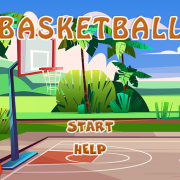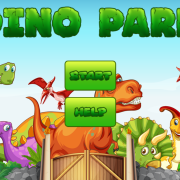Human Impact on Ecosystems | Game Online
Unveiling the Human Impact on Ecosystems: A Closer Look at Our Footprint
In the grand tapestry of life, humanity has emerged as a dominant force, leaving an indelible mark on the planet we call home. This article delves into the intricate relationship between human beings and ecosystems, focusing on the profound influence humans have exerted on these delicate networks of life support systems – the human impact on ecosystems.
The Ecosystem: A Vital Web of Life
An ecosystem is a complex network or interacting living organisms and their physical environment, including all the non-living components like air, water, soil, and sunlight. These ecosystems provide essential services, such as food, clean water, and fertile soils, sustaining life on Earth.
Human Intrusion: The Dawn of Disruption
As human populations expanded and civilizations rose, our interaction with ecosystems began to shift from passive coexistence to active manipulation. This transformation has been marked by deforestation, overfishing, pollution, habitat destruction, and the introduction of invasive species – all hallmarks of human impact on ecosystems.
Deforestation: Clearing the Forest
Deforestation is the permanent destruction or removal of a forest or stand of trees from land, with the aim of making the land available for other uses. This practice has significant consequences for biodiversity, soil erosion, climate change, and local communities that depend on forests for their livelihoods.
Overfishing: Depleting the Seas
Overfishing occurs when more fish are caught from a fishery than can be sustainably replenished. This practice threatens food security, disrupts marine ecosystems, and endangers fragile species populations.
Pollution: Poisoning the Planet
Pollution, in all its forms – air, water, soil, and noise pollution – poses a significant threat to ecosystem health. Toxins accumulate in food chains, bioaccumulating and biomagnifying over time, eventually reaching harmful levels for top predators and humans alike.
Habitat Destruction: Uprooting Life
The conversion of natural habitats into agricultural lands, urban sprawl, or infrastructure projects disrupts ecosystem balance, leading to species extinction, habitat fragmentation, and altered ecosystem services.
Invasive Species: Alien Invaders
The introduction of non-native species can lead to unintended consequences, such as the destruction of native species populations, alterations in food webs, and changes to ecological processes.
The Call for Conservation: A Path Forward
As we grapple with the human impact on ecosystems, it is crucial that we embrace conservation efforts to protect and restore these vital networks of life. This may involve reforestation initiatives, sustainable fishing practices, pollution reduction strategies, habitat restoration projects, and invasive species management programs.
By working together, we can forge a new path – one where humanity's footprint on the planet is minimized, and our impact on ecosystems is mitigated, ensuring a healthier, more sustainable future for generations to come.










